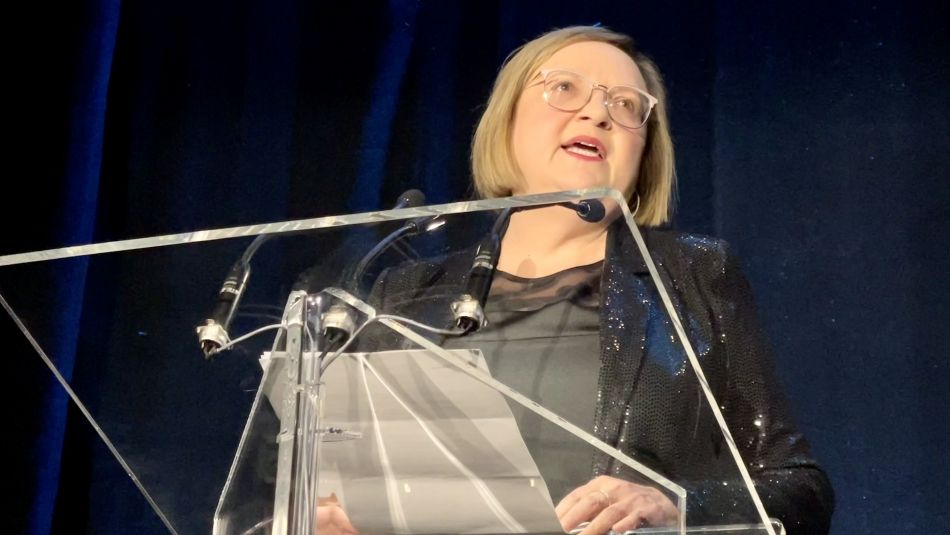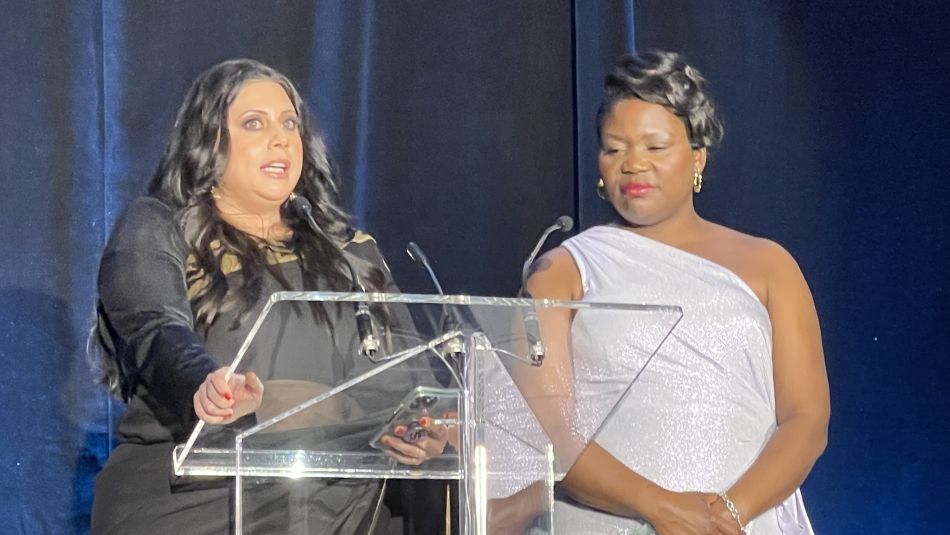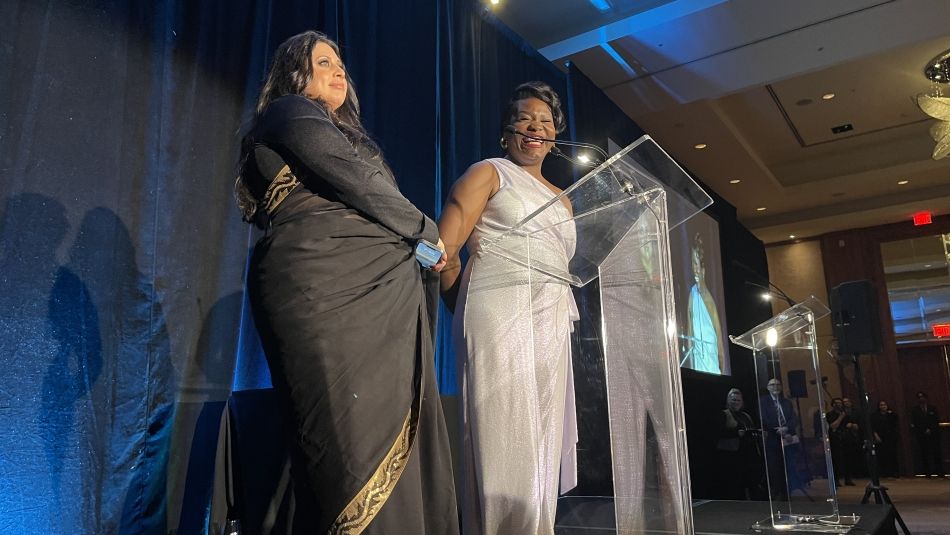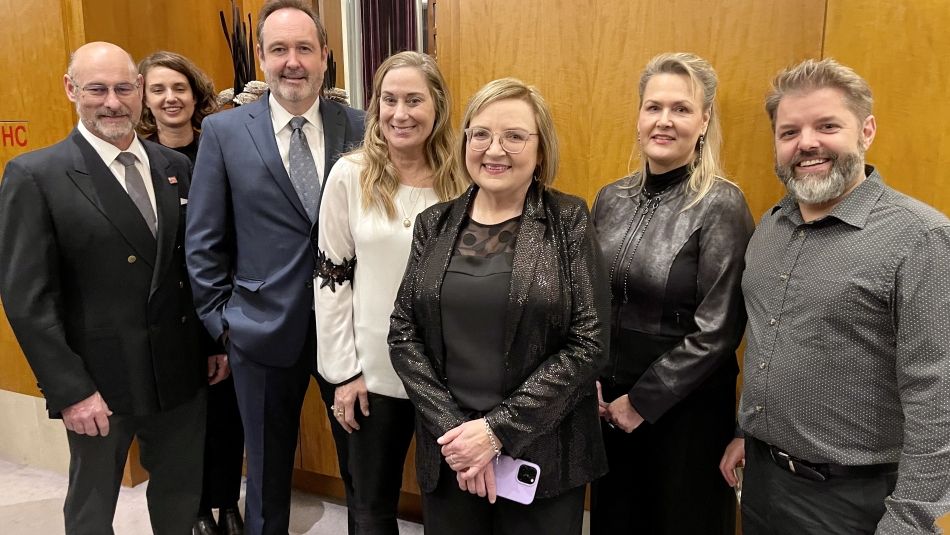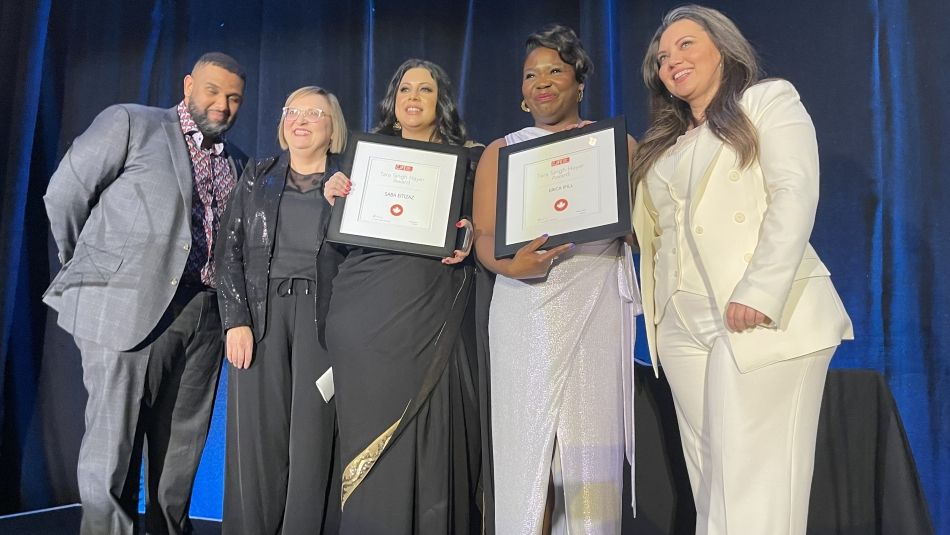
Share
Three women journalists, two of whom are Unifor members, were recognized tonight at the Canadian Journalists for Free Expression gala in Toronto for their brave efforts to fight back against misogyny and their online abusers.
This year’s Tara Singh Hayer Award was presented to Toronto Star podcast co-host and producer Saba Eitizaz and Global News political reporter Rachel Gilmore, both Unifor members, and The Hill Times journalist Erica Ifill.
“We are honouring three kick-ass journalists who have faced intense harassment and violence for merely doing their jobs,” said Unifor’s National President Lana Payne in her speech, introducing the award winners.
“Three courageous women have stood up to the trolls, the attacks, the vicious threats and daily harassment and violence in order to defend freedom of the press. They deserve not only our admiration, but our collective action and support. When a journalist faces harassment, we know what’s really at play is the will to silence them. But silencing them and the truth they carry is something for which we cannot stand.”
The award spotlights Canadian journalists, who, through their work, have made an important contribution to reinforcing and promoting the principle of freedom of the press in Canada or elsewhere, and who have taken personal risks or suffered physical reprisals for their work.
Last summer, the three journalists used their voices on Twitter to speak out against the abuse and death threats they received and rallied their news organizations to back them.
They helped draft an open letter to Prime Minister Justin Trudeau and other political and security stakeholders, which was then signed by 48 Canadian media organizations and published by their three newsrooms along with the Canadian Association of Journalists, putting pressure on Trudeau and other MPs to commit to policy changes and vowing to take action.
“Look around you, there are probably journalists in your newsroom that are losing hope or purpose and important stories are going untold,” said Eitizaz to the crowd.
“Journalism is an act of love. It doesn’t really pay much, the cost is really high because no one wants to be told multiple ways they deserve to die and the ways they’re going to be killed. We do it because we know it’s not about us, it’s about every institution we hold accountable, the very foundations that democracy is based on.”
Eitizaz, who fled as a journalist from Pakistan to Canada after receiving death threats for her work, said what journalists need from their newsrooms, managers and their communities to support them and make them feel safe.
“Online violence is assault,” she said. “It buries our sense of self and we lose sight of how and when we’re allowed to occupy space. We carry it with us. Thank you, CJFE, for this honour and making me feel like less of a ghost in this country. It’s not lost on me that I’m receiving an award named after another brown journalist, an immigrant, a Punjabi like me, who was threatened, attacked and assassinated for doing their job.”
Gilmore was unable to attend the awards.
Ifill, in her acceptance speech, said social justice is always worth fighting for – but being a journalist of colour often means an uphill battle just to do your job.
“I also want to speak out for the freelancers out there who are most likely going to be racialized, women, 2SLGBTQI+, with disabilities, Trans people, people who have precarious status,” she said. “These are the stories that we need to tell more of as journalists.”
On the same night, Unifor’s Media Council launched its new media discussion paper—Breaking the News: Media Workers Under Attack—over a year in the making, which focuses on confronting anti-harassment for media workers and Unifor’s multi-prong approach to supporting victims of harassment, demanding accountability and promoting prevention and holding digital platforms accountable.
It also examines the roles of media employers, media unions, journalism schools, and the criminal justice system as well as legislative regulatory solutions and harassment in Canada and abroad.
“As a union, we have ongoing campaigns and initiatives to combat the daily harassment, violence and discrimination faced by journalists and media workers,” Payne said at the gala.
“Violence that we’ve already heard is magnified, 100-fold if you are woman, if you’re Black, if you’re Indigenous or racialized worker. But we must consider what we can do together – media unions, media employers and governments – to dismantle the misogyny and racism that underpins this culture of violence.”
In the face of increasing harassment of journalists and media workers online and in-person, made worse by polarizing politics and the anonymity of social media, Unifor launched the Help is Here website to allow journalists and media workers to get the support they need when they need it.
The site was developed by Unifor in conjunction with Unifor journalists and media members on the front lines, drawing on our experiences in bargaining and developing workplace anti-harassment procedures. It also draws on existing resources in the community available to journalists and media workers. The site will be updated regularly as new tools and resources come available.
At Ontario Regional Council in December, Unifor debuted a video about its members working in the media sector speaking out against harassment on the job. Click here for a downloadable link for the video.


